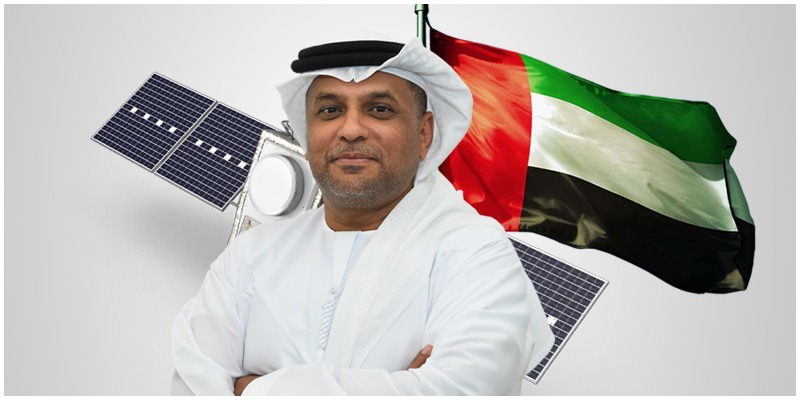The United Arab Emirates will launch a navigation satellite next year in a bid to demonstrate the country’s technological capabilities, WAM reported.
“The first satellite will be launched in 2021 and the second – a technologically enhanced one – the following year,” said Dr. Khaled Al Hashmi, Director of the National Space Science and Technology Centre (NSSTC) at the UAE University in Al Ain. The NSSTC was jointly established by the university along with the UAE Space Agency and the Telecommunications Regulatory Authority (ICT-Fund).
Navigation satellites offer positioning signals for navigation functions in car navigation systems and smartphones. They use signals from satellites for satellite positioning services to help detect someone’s current location. These services are also used for surveying and disaster prevention.
The navigation satellite will be the first project of Satellite Assembly, Integration and Testing (AIT) Centre, a collaboration formed by Tawazun Economic Council with Airbus and the NSSTC. The satellite project is funded by the UAE Space Agency.
The new satellite is not aimed at replacing any existing Global Navigation Satellite Systems (GNSS) but can be used as a substitute if one existing system does not work, he clarified. It can also be used for purposes such as deploying drones.
Right now, there are four GNSS – Global Positioning System (GPS) of the United States, GLONASS of Russia, Galileo of the European Union and BeiDou of China. There are also two regional systems – the Quasi-Zenith Satellite System (QZSS), of Japan and the Indian Regional Navigation Satellite System (IRNSS), later given the operational name Navigation with Indian Constellation or NavIC.
The UAE’s Mars Mission, Hope Probe, contributed to the establishment of the AIT Centre, the official said.
The second project of the AIT Centre is the development of 813, the Arab Satellite, an initiative announced by His Highness Sheikh Mohammed bin Rashid Al Maktoum, Vice-President, Prime Minister and Ruler of Dubai.
The first phase called the mission concept is complete, Al Hashmi said. The team will soon move to the second phase and has constituted a local team; next task is selecting partners from other Arab countries participating in the project, he revealed.
The UAE initiated the creation of the first Arab Space Coordination Group in 2019 along with 10 Arab nations to develop 813, an advanced satellite funded by the UAE Space Agency to monitor earth, environment and climate. The name 813 refers to the date that marked the beginning of prosperity for the House of Wisdom in Baghdad under the reign of Al-Ma’mun.
The new satellite will be designed and manufactured by Arab engineers from countries that have signed the charter for the launch. The 11 countries are the UAE, Jordan, Bahrain, Algeria, Saudi Arabia, Sudan, Lebanon, Kuwait, Morocco and Egypt. The member countries voted for the UAE to lead the new organisation.
The satellite that will be launched in 2024 will be the first in the region to collect atmospheric data on climate change. The collected data will be shared with other universities and institutions in the Arab world, he explained.
Meanwhile, the Hope Probe, which took off from Japan’s Tanegashima Space Centre on July 20, is staying healthy on its course and the Mohammed Bin Rashid Space Centre in Dubai is receiving signals as per the expectations, the official revealed.
Space missions will raise hopes about future of science and technology in the county and region, Al Hashmi said.









